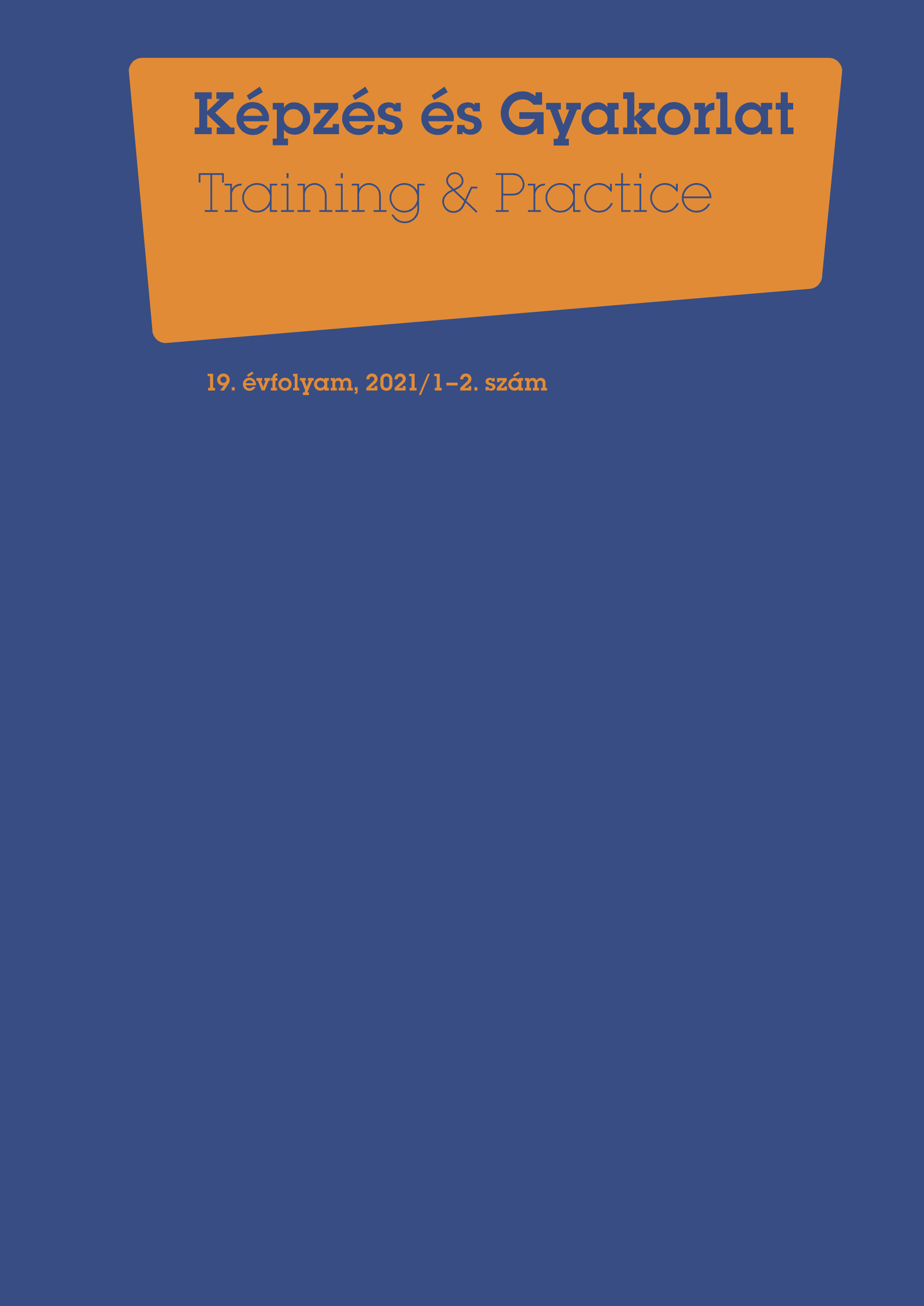Connection between goal orientations and school motivation from the aspect of students learning in vocational training schools
DOI:
https://doi.org/10.17165/TP.2021.1-2.13Abstract
Learning motivation is the key factor of school success. The process of acquiring new knowledge requires motivation from the side of the student, and at the same time, dealing with new tasks triggers the experience of success (Réthy, 2002). Motivation is modified according to internal dynamic driving forces and external factors; which means that it rests on the cognitive, affective, effective interaction self-regulation system of the student and his/her environment (Réthy, 2001). The social environment can influence learning motivation (Fejes, 2015). Fejes’ Goal orientation (2015) and Kozéki and Entwistle’s School motivation (1986) questionnaires served as a base for our research. The research involved five vocational training schools, 445 students, who studied in the 9th and 11th grades in spring 2019. The results contribute to understanding students’ learning motivation in vocational training schools, and point to their developmental potentials.
References
Ames, C. (1992). Classrooms: goals, structures, and student motivation. Journal of Educational Psychology, 84. évf. 3. sz. pp. 261-271. DOI: https://doi.org/10.1037/0022-0663.84.3.261
Bakacsi, Gy. (2010). A szervezeti magatartás alapjai. Alapszakos jegyzet a Budapesti Corvinus Egyetem hallgatói számára. Budapest: Aula kiadó.
Boreczky, Á. (2001). Változások a szülők gyerekfelfogásában, a gyerekek életkörülményeiben és szocializációjában (1910-1990). Magyar Pedagógia, 101. évf. 2. sz. pp. 151–169.
Ceglédi, E. és Máth, J. (2013): Az iskolai teljesítményt befolyásoló tényezők vizsgálata. Alkalmazott Pszichológia, 13. évf. 4. sz. pp. 23-46.
Csibi, S. és Csibi, M. (2011). Az iskolai motiváció elemzése évfolyam, nem és teljesítmény függvényében. Magiszter: A Romániai Magyar Pedagógusok Szövetségének szakmai-módszertani folyóirata. 9. évf. 2. sz. pp. 19-31. [online] http://rmpsz.ro/uploaded/tiny/files/magiszter/2011/nyar/05.pdf [2020. április 25.]
Csíkszentmihályi, M. (2001): Flow. Az áramlat. A tökéletes élmény. Budapest: Akadémiai Kiadó.
Fejes, J. B. (2015). Célok és motiváció. Tanulási motiváció a célorientációs elmélet alapján. Budapest: Gondolat Kiadó.
Kozéki, B. és Entwistle, N. J. (1986). Tanulási motivációk és orientációk vizsgálata magyar és skót iskoláskorúak körében. Pszichológia, 6. évf. 6. sz. pp. 271292.
Langton N. és Robbins S. P. (2006): Fundamentals of organizational behavior. (3rd Canadian edition). [online] https://epdf.pub/fundamentals-of-organizational-behavior-third-ca-nadian-edition.html [2019. október 31.]
Meece, J. L., Herman, P. és McCombs, B. (2003). Relations of learner-centered teaching practices to adolescents’ achievement goals. International Journal of Educational Research, 39. évf. 4–5. sz. pp. 457–475. DOI: https://doi.org/10.1016/j.ijer.2004.06.009
Nikitscher, P. (2015): A pedagógusok szerepe és lehetőségei az iskolai szocializáció folyamatában. In: Nikitscher, P. (szerk.): Az iskola szociális szerepe és lehetőségei. Budapest: Ok- tatáskutató és Fejlesztő Intézet. pp. 56–79.
Péter-Szarka, Sz. (2010): Az idegennyelv-tanulási motiváció és az azzal összefüggésben álló tanulói jellegzetességek változása a felső tagozatban. Iskolakultúra. 20. évf. 9. sz. pp. 105–117.
Pintrich, P. R. (2000). The role of goal orientation in self-regulated learning. In: Boekaerts, M., Pintrich, P. R. és Zeidner, M. (Ed.), Handbook of self-regulation, (pp. 451–529). San Diego: Academic Press. DOI: https://doi.org/10.1016/B978-012109890-2/50043-3
Pintrich, P. R. (2003). A motivational sciences perspective on the role of student motivation in learning and teaching context. Journal of Educational Psychology, 95. évf. 4. sz. pp. 667−686. DOI: https://doi.org/10.1037/0022-0663.95.4.667
Réthy, E. (2001). A tanulási motiváció elemzése. In: Csapó Benő és Vidákovich Tibor (Ed.), Neveléstudomány az ezredfordulón. Tanulmányok Nagy József tiszteletére, (pp. 153–161). Budapest: Nemzeti Tankönyvkiadó.
Réthy, E. (2002). A kognitív és motivációs önszabályozást kialakító oktatás. Iskolakultúra. 2. sz. pp. 3-12.
Urdan, T. és Schoenfelder, E. (2006). Classroom effects on student motivation: Goal structures, social relationships, and competence beliefs. Journal of School Psychology, 44. évf. 5. sz. pp. 331-349. DOI: https://doi.org/10.1016/j.jsp.2006.04.003
Downloads
Published
Issue
Section
License
Copyright (c) 2021 Sütő Éva, Petőné Csima Melinda

This work is licensed under a Creative Commons Attribution-NonCommercial-NoDerivatives 4.0 International License.












